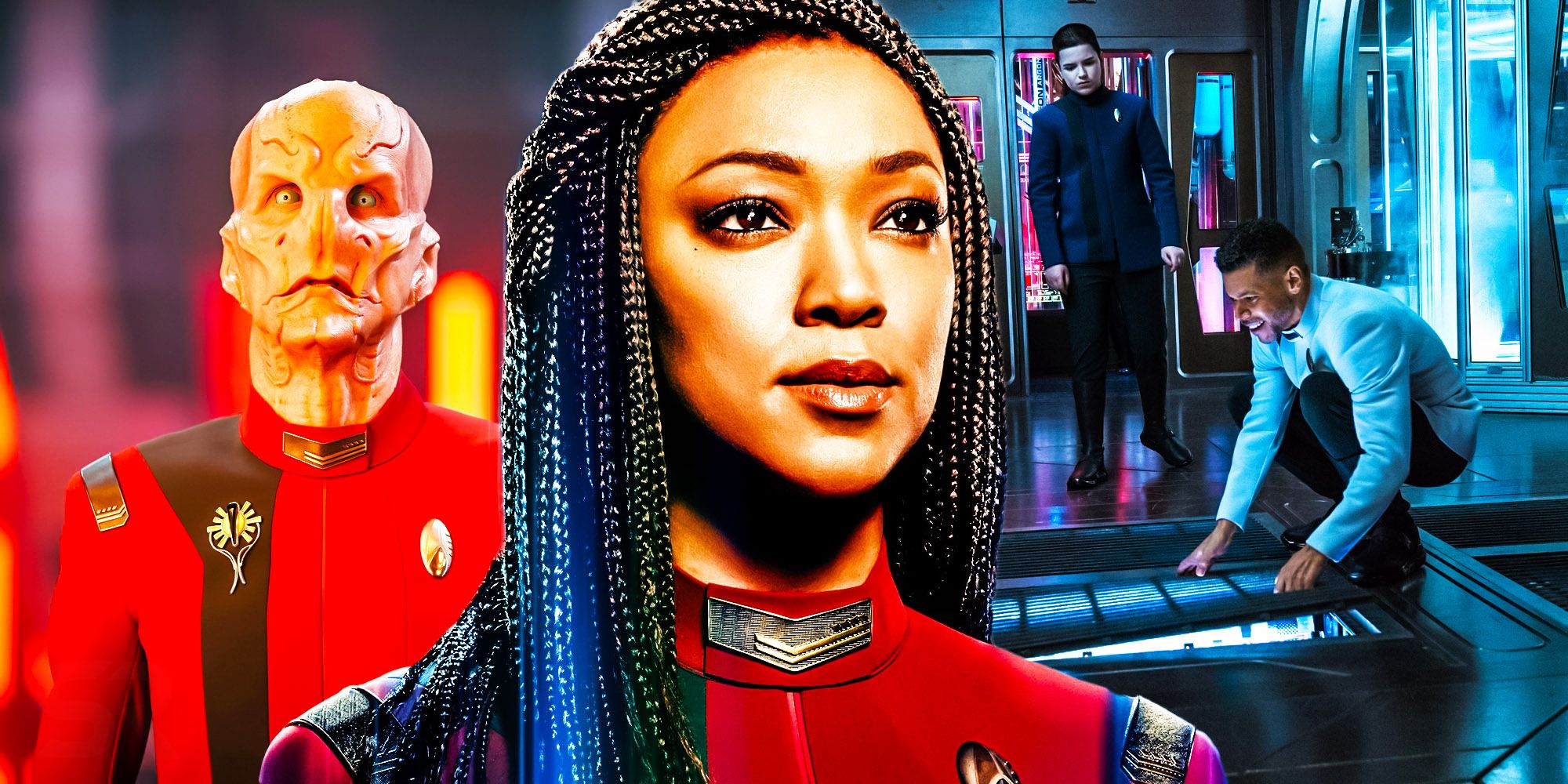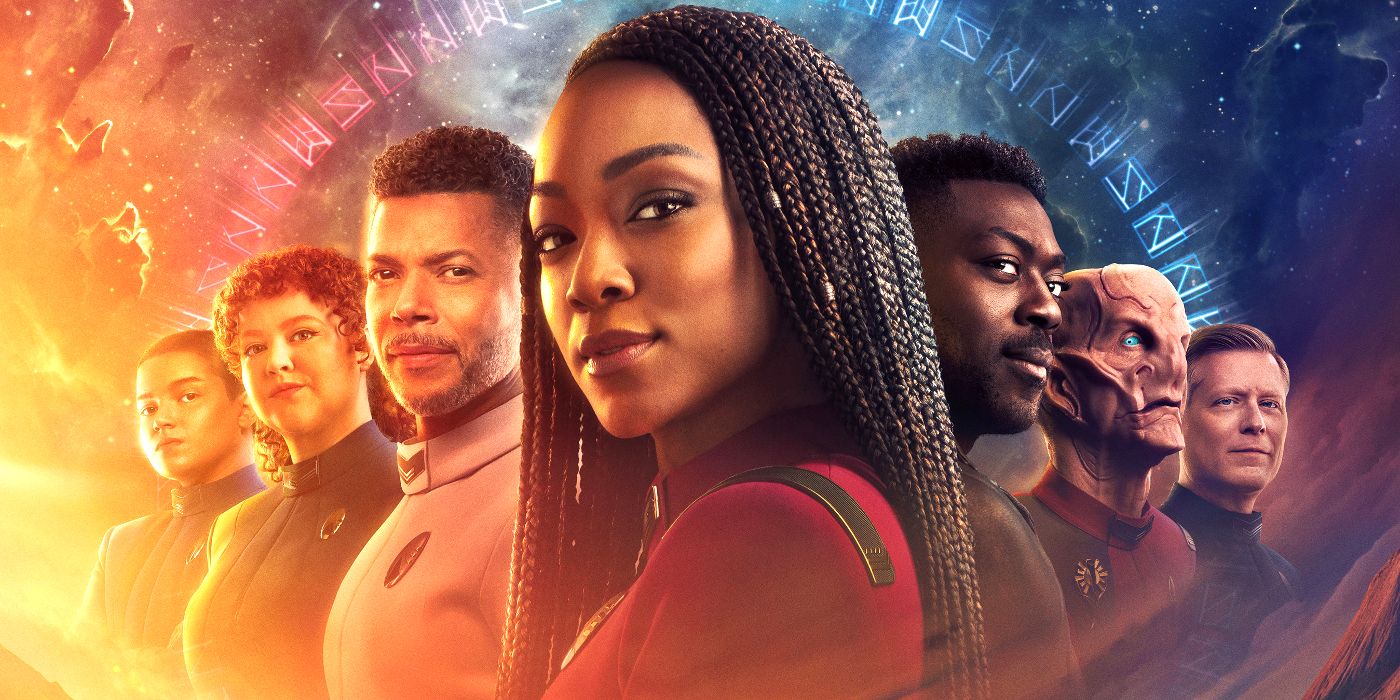Exclusive: Star Trek: Discovery’s series lead, Sonequa Martin-Green, sums up the many proud achievements of her show as it enters its final season.

Summary
- Star Trek: Discovery’s legacy is marked by boldly bringing Trek back to TV and championing diversity.
- The show’s hyper serialization and diverse characters have broken barriers and made TV history.
- Laying the groundwork for a new Trek expansion, the cast prays that their legacy will be remembered for years to come.
Star Trek: Discovery’s series lead and producer, Sonequa Martin-Green, proudly sums up her show’s proud legacy as it enters its final season. Star Trek: Discovery season 5 premieres Thursday, April 4, on Paramount+, and the final 10 episodes promise a vast intergalactic adventure for Captain Michael Burnham (Sonequa Martin-Green) and the crew of the USS Discovery.
In an exclusive interview with Screen Rant at SXSW prior to the world premiere of Star Trek: Discovery season 5, the cast was asked what they think Discovery’s legacy will be. Sonequa Martin-Green eloquently spoke about Star Trek: Discovery‘s many achievements, from bringing Star Trek back to television to championing diversity with the show’s multi-racial and LGBTQ+ characters. Check out Martin-Green’s quote below:
I think one of our legacies is that we went boldly, don’t y’all think? You know, it’s like, we went boldly into a new Trek. We bought Trek back to TV, we launched a streaming platform… People call this the new Latinum age, right? We became the mothership of a whole new trek expansion. So many characters were able to come back, so many alumni from previous iterations have been able to come back. And now, new people have been able to come into the world of this beautiful franchise. And then, also, we went into hyper serialization, we told our story as a novel in chapters that Trek had never done it to that extent before. We went above and beyond with our diversity. We broke barriers, we broke through the glass ceiling, we made television history.
And then we built this beautiful show family. You know, we were joking about it earlier. But it’s true. We did it together, you know what I mean? And so, I feel that we just we went boldly into this story. We went boldly into the world, we went boldly together, and I pray, you know… I praise God for it. And I pray that that is part of the legacy that we leave behind. I know legacy doesn’t get decided until well after the fact. But, we can’t really speak on what our legacy is going to be. We know what we hope it to be, but we can speak on it maybe 10 years from now, but we at least hope that that’s part of it.

Star Trek: Discovery season 5’s intergalactic treasure hunt has all the cinematic thrills we’ve come to expect, but suffers from big pacing issues.
Saving Star Trek Is Part Of Discovery’s Legacy
Discovery changed Star Trek for the better
Star Trek was off television for 12 years before Star Trek: Discovery premiered, and Disco‘s success opened the door for Paramount+’s massive expansion of the Star Trek universe. Discovery has always been controversial, but it bolstered the nascent CBS All-Access streaming service, which rebranded into Paramount+. It was thanks to Discovery that Star Trek: Picard, Star Trek: Lower Decks, Star Trek: Prodigy, and Star Trek: Strange New Worlds launched to give new dimensions to the franchise, from nostalgia for Star Trek: The Next Generation, to comedy, to all-ages thrills, to the recapturing of classic Star Trek‘s new frontier optimism.
The next Star Trek series, Star Trek: Starfleet Academy, is expected to be a spinoff of Star Trek: Discovery .
Star Trek: Discovery also broke barriers with a diverse main cast, starting with Sonequa Martin-Green as the first Black female Star Trek lead, Academy Award-winner Michelle Yeoh in a featured recurring role, the first openly gay married couple who were Starfleet main characters in Paul Stamets (Anthony Rapp) and Dr. Hugh Culber (Wilson Cruz), and Star Trek‘s first non-binary and transgender characters played by Blu del Barrio and Ian Alexander. Star Trek: Discovery has multitudes of fans, as well as detractors, but the series and its legacy of achievements should stand the test of time.





